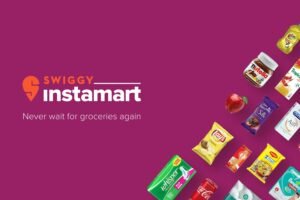Zepto’s Rapid Growth: Mumbai based Quick Commerce Unicorn co-founder and CEO, Aadit Palicha, said in Delhi on July 6, “If we execute well, we can realistically take this business from Rs 10,000-plus crores in top line today to potentially to… Rs 2.5 lakh crore of top line over the next 10 years or next five years,”

He stated that the food and household goods industry in India was approximately $650 billion in FY23, is increasing at a CAGR of 9%, and is predicted to reach $850 billion by FY29.
Zepto, three-year-old startup raised $665 million (about Rs 5,550 crore) from new investors, including New York-based private equity firm Avenir Growth Capital, venture firm Lightspeed, and Avra Capital, a new fund founded by former Y Combinator Continuity head Anu Hariharan and Andreessen Horowitz.
Existing investors, such as Glade Brook, Nexus, and StepStone Group, also contributed.
According to Palicha, the company’s biggest issue is finding personnel with the correct attitude.
By March 2025, the business intends to treble the number of warehouses used to deliver groceries within a two-kilometer radius to more than 700, funded by reinvesting sales from mature retailers.

Zepto has a 29 percent market share in 10-minute grocery delivery (also known as rapid e-commerce), up from 15 percent in March 2022. Blinkit holds roughly 40% of the market, with Instamart taking the remaining share.

Zepto has also received investor interest for an additional $250 million in a new round that values the company at approximately $4.6 billion. The investment, which could reach $400 million, could see private equity heavyweights such as General Catalyst and KKR join the company’s capital structure.
Zepto plans to use the funds to enter new markets such as Jaipur, Chandigarh, and Ahmedabad, as well as expand its presence in existing cities such as Mumbai, Delhi, and Bengaluru.
The business plans to increase its dark store count from 350 to over 700 by March 2025.
The online grocery market in India has witnessed remarkable growth in recent years.

- Market Size and Growth:
- In 2020, the India online grocery market was valued at USD 2.9 billion and is projected to expand at a CAGR of 37.1% from 2021 to 20281.
- By 2024, the market value of online groceries across the country is estimated to exceed one trillion Indian rupees2.
- In 2023, the market value reached USD 4.45 billion, and it is expected to continue growing with a CAGR of 34.1% through 20293.
- Drivers of Growth:
- Changing Lifestyle: Consumers’ preference for customizable and convenient online platforms for grocery shopping has increased due to changing lifestyles and growing urbanization.
- Safety and Convenience: Online grocery shopping offers contactless delivery, saving time and ensuring safety, especially during the COVID-19 pandemic.
- Internet Penetration: Increased internet penetration, declining data tariffs, and availability of cheaper smartphones have contributed to market growth.
- Key Players:
- Popular online grocery platforms in India include Amazon, BigBasket, and Grofers.
BigBasket: BigBasket was India’s first unicorn in the online grocery delivery space. It secured unicorn status after receiving $150 million in funding from investors like Mirae Asset Global Investments, CDC Group, and Alibaba in May 2019.
Both Zepto and BigBasket play crucial roles in transforming the grocery delivery landscape in India. The online grocery market continues to evolve, driven by digital awareness and consumer preferences
Indian consumers prefer online grocery shopping due to convenience, saving time, and avoiding physical market visits. India’s online grocery market is dominated by players like Big Basket, Grofers, and Amazon, with the latter accounting for nearly 50% of the market share.

- Cost: Depending on the store, online shopping may be more expensive due to usage and delivery fees.
- Lack of Control: You can’t handpick each item, especially fresh produce. Quality assessment is challenging.
- Perishable Goods: For items like fruits and vegetables, you may still need to visit the grocery store in person.










